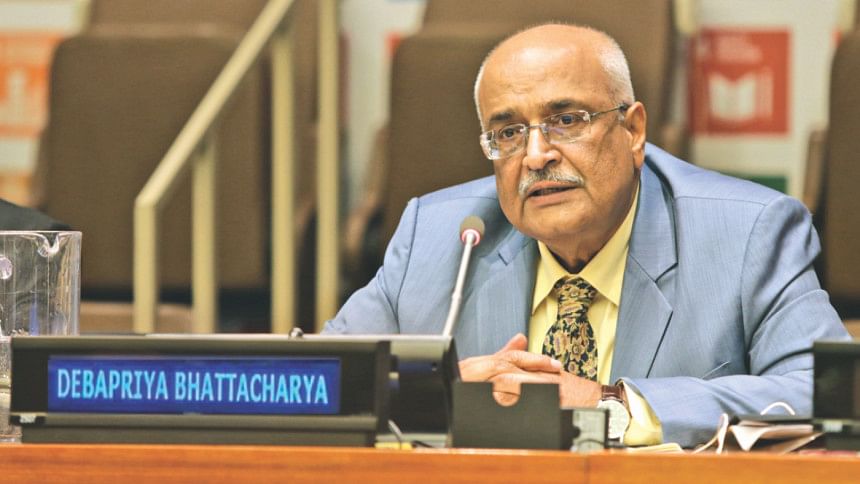White paper on state of economy in the offing

The government will prepare a white paper on the state of the economy so that strategic steps can be taken to stabilise the economy, reach the SDGs, and mitigate the challenges after Bangladesh graduates from the LDC grouping.
Economist Debapriya Bhattacharya will be the chief of a panel of economists and eminent citizens, who will come up with the white paper.
Debapriya, convener of the Citizen's Platform for SDGs and a distinguished fellow of the Centre for Policy Dialogue, will choose the members of the committee after talking to the chief adviser.
He said, "It [the white paper] will be a very pertinent transparency exercise to establish the benchmark of the economy. It will inform the future reform measures. I am grateful to the chief adviser that he has recognised its necessity and has taken immediate action."
The panel was given 90 days, starting yesterday, to submit the paper to Chief Adviser Prof Muhammad Yunus, said a statement from his office.
Bangladesh's economy has been suffering for a decade and a half due to mismanagement, corruption, capital flight, and unnecessary projects, said the statement.
"In this situation, the interim government should have a clear picture of the economy and [an outline of] the way out of the challenging situation. So, it decided to form a committee to prepare the white paper," it read.
The focus of the white paper will be on public finance management, inflation, food management, external balance, energy and power, private sector assessment, and employment.
Regarding public finance management, the committee will concentrate on domestic resource collection, public expenditure (public investment, annual development programme, subsidies and debt), and financing of budget deficit.
To get the picture of inflation and food management, it will analyse production, public procurement, and food distribution.
For understanding the challenges of external balance, the committee will focus on export, import, remittance, foreign direct investment, foreign exchange reserves, foreign finance flow and debt.
The panel will also delve into power demand, supply, pricing, costs and purchase agreements to get a clear idea of the problems in the energy and power sector.
Regarding private investment, it will focus on access to credit, electricity, connectivity, and logistics. It will also emphasise on employment at home and overseas, formal and informal wages, and youth employment issues.
The committee members will work for free. The committee will have its office at the Planning Commission and have secretarial support from the General Economic Division of the commission.
The chief adviser's office in the statement said the Hasina-led government left a loan burden of Tk 18,36,000 crore. The government borrowed from internal and external sources to meet its budget deficit without driving hard to raise tax collection.
Although the government's plan was to raise the tax-to-GDP ratio to 14 percent in the current fiscal year, it is now 8 percent. This is an example of economic mismanagement, it said.
In general, people are suffering mainly due to corruption, opportunity of capital flight, and syndication in the market.
Inflation was around 12 percent in July while food inflation was above 14 percent, according to the Bangladesh Bureau of Statistics.
The economy lost its path during the regime of the previous government, it added.

 For all latest news, follow The Daily Star's Google News channel.
For all latest news, follow The Daily Star's Google News channel. 








Comments